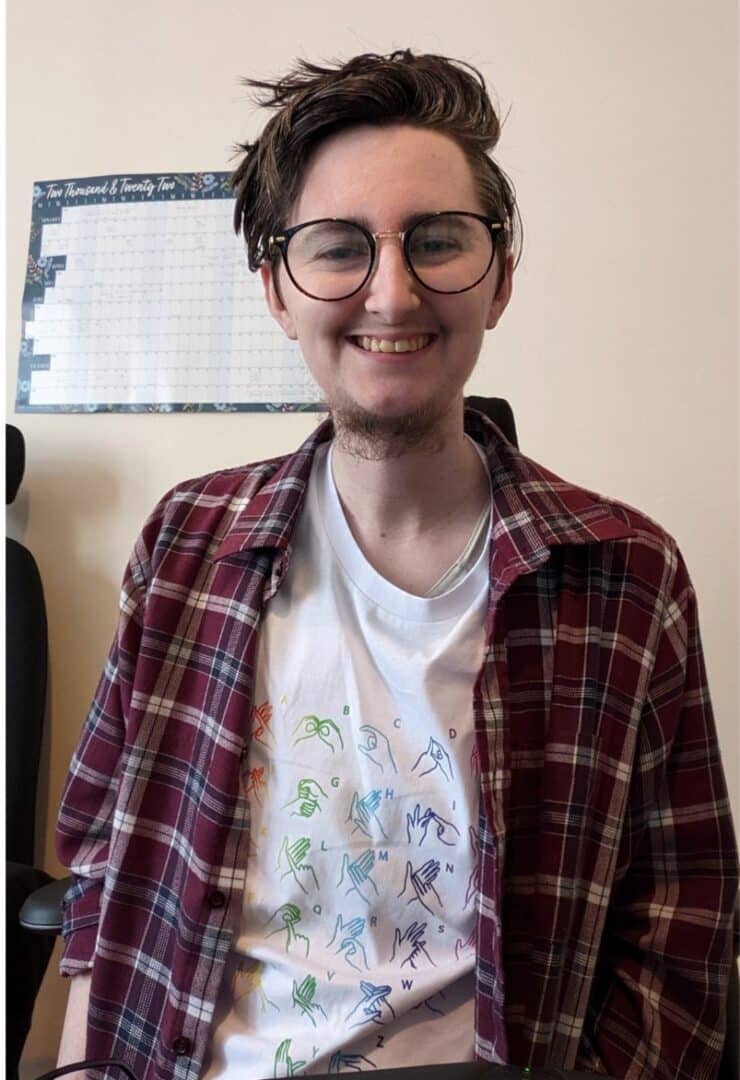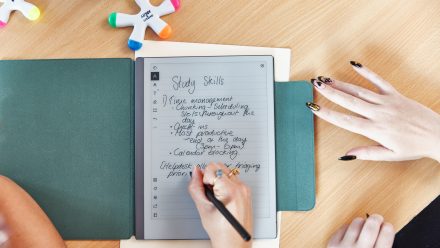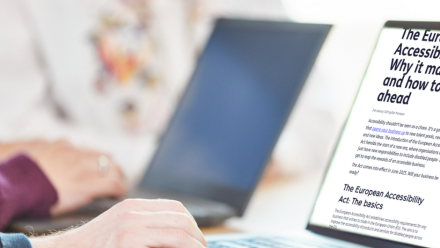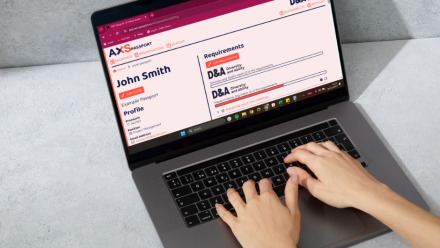Proud to be Deaf and Autistic; celebrating Sign Language Week and Neurodiversity Celebration Week
14th March 2023 by Jasper Williams
I was picked up with traits associated with being autistic very young, but it really wasn’t until later in life that I accepted and took pride in my identity as an autistic person. And, because I grew up for most of that time thinking I was hearing, I only went through my Deafhood journey later, too.
I grew up feeling like the odd one out, that I was different – a lot more than just the “peculiar” friend, but the one who:
- struggled to keep and maintain friendships
- had to concentrate with all my willpower to understand what was being said
- felt emotions very intensely
- got overwhelmed very easily
- was, in my early years, nonspeaking
- couldn’t cope with even the smallest changes such as a friend having a haircut without telling me.
As stereotypes go I “fit” the trope pretty consistently of being autistic, but just like with any condition, no two autistic people are the same. Lots of people talk about autism celebration and awareness, but acceptance is (and must be) unconditional. This means you need to be there for our good days and our bad days; things considered ‘quirky’ as well as situations where the public feel embarrassed and stare at us.
Allyship is not being able to pick and choose when to accept us and our true authentic, autistic selves. Allyship is being there for the good, the bad, and in need of support.

Often I am presumed to be rude, as when I am asked for my opinion or asked a question, I will give an honest, and direct answer. I frequently misinterpret what people say to me or what they actually mean. This includes not understanding vague comments, such as when telling me to try “just as soon as you can”. If someone makes an off-hand comment I really struggle to understand what they are trying to ask me or what they mean, ending in them either giving up or saying it doesn’t matter.
Social situations lead me to feel very overwhelmed and require a lot of energy. The result is that social interactions leave me exhausted and take me a long time to recover from.
When I eventually realised that I was autistic, everything suddenly made sense and fit into place. I was able to find other people who were autistic, have support through university, and become proud of, and specialise in, my special interests and my autistic identity. My passion, drive, empathy, and special interests have shaped my life, my degree focus, and my work.
Figures suggest that up to around 9% of deaf children are formally diagnosed as autistic compared to 1% of hearing children (1), suggesting there is a really strong link between deafness and autism.
Hearing children are rarely diagnosed as autistic before 2 years, at the earliest (2); but a deaf person who is also autistic will often be diagnosed later, at around 9 at the earliest. This is because some of the indicators of deafness are similar to autistic indicators or are put down to Deaf culture. Many autistic people have hearing in the normal range, but lots of the Autistic community have heightened sensitivity to sound, auditory processing issues, and others under-responsive to sound,which can be confused as deafness or a result of deafness.
Both deafness and autism can have a significant impact on communication and language development. I knew some very basic sign language, but not enough to aid communication.
In many ways, learning BSL properly saved my life.
Like many autistic and deaf people, I was put through speech and language therapy for the first few years of my life as I was nonspeaking. But without knowing that I was Deaf and autistic, I grew up knowing that I was somehow different, but not knowing what was wrong. It led me to think that I was broken; that, whatever was ‘wrong’ with me, it was somehow my fault.
After a sudden deterioration in my hearing and being diagnosed as profoundly Deaf, I was left with the need to learn how to re-communicate.
During this time, I spent a lot of it reflecting on my experiences with communication growing up. I came to realise how lonely and isolating it had been even then, and the struggles I faced, including:
- Not understanding facial expressions and cues.
- Severely struggling with eye contact.
- Struggling to work out sarcasm, idioms, and expressions.
- Comments being vague/confusing and explained in an unclear way to me.
- Struggling to express myself with my words as I often felt that the English language, in many ways, was too limited for my feelings.
- Group conversations were extremely difficult, and even one-to-one was challenging.
- The idea of going to an event was not just laughable, it was not a possibility alone.
- Difficulty connecting with friends and family who felt so different to me.
Learning BSL and Deaf culture in my early-mid 20s has not only helped me to re-communicate as someone who became profoundly Deaf, but, as an autistic person, it has completely reshaped the way that I think about communication.

For the first time, I felt included and that I could truly express myself, and my feelings. Through learning BSL, the grammar, structure, and syntax, as well as aspects such as the need for facial expressions, it has taught me so much more than ‘just a language’.
One of the biggest challenges I initially had with BSL is now one of my biggest strengths; BSL ‘forced’ me into using facial expressions, as this is a vital part of sign language, and this has really helped my ability to do so. Previously, I would try and copy others or be told I looked ‘bored’, but now I know BSL and spent the time to learn this, it has made my ability to use and understand facial expressions a lot more. Similarly, BSL helped me to use eye contact more appropriately; I still struggle with this, but previously I often wasn’t even able to look directly at someone, so this was massive. It’s helped me to come across more naturally, both in the fluency of using language, as well as the different aspects needed.
But most importantly, BSL has allowed me a way to express myself. I can communicate what I’m trying to say that I struggle to do so by using the spoken English language, and I can understand what a person is conveying in BSL.
The Deaf community and BSL were completely life-changing, and I will forever be so grateful and proud of that.
Top tips for learning BSL to communicate with a Deaf, Autistic signer:
- Learn from a Deaf tutor, who is best to teach you not only the language (their language), but the culture, history, and community.
- Just like with Spoken English, every region has regional ‘accents’, so it’s best to find a course in your area. You can find local BSL courses that are accredited at Signature.
- If in-person courses are not an option for you, you can also learn online; BSL Courses is a great resource.
- If money is really difficult right now, there are some apps that can help like BrightBSL, SignBSL and SpreadTheSign; but note that these are not a replacement for learning BSL, just an aid to help.
- Go to events and practice, practice, practice!
Reference:


